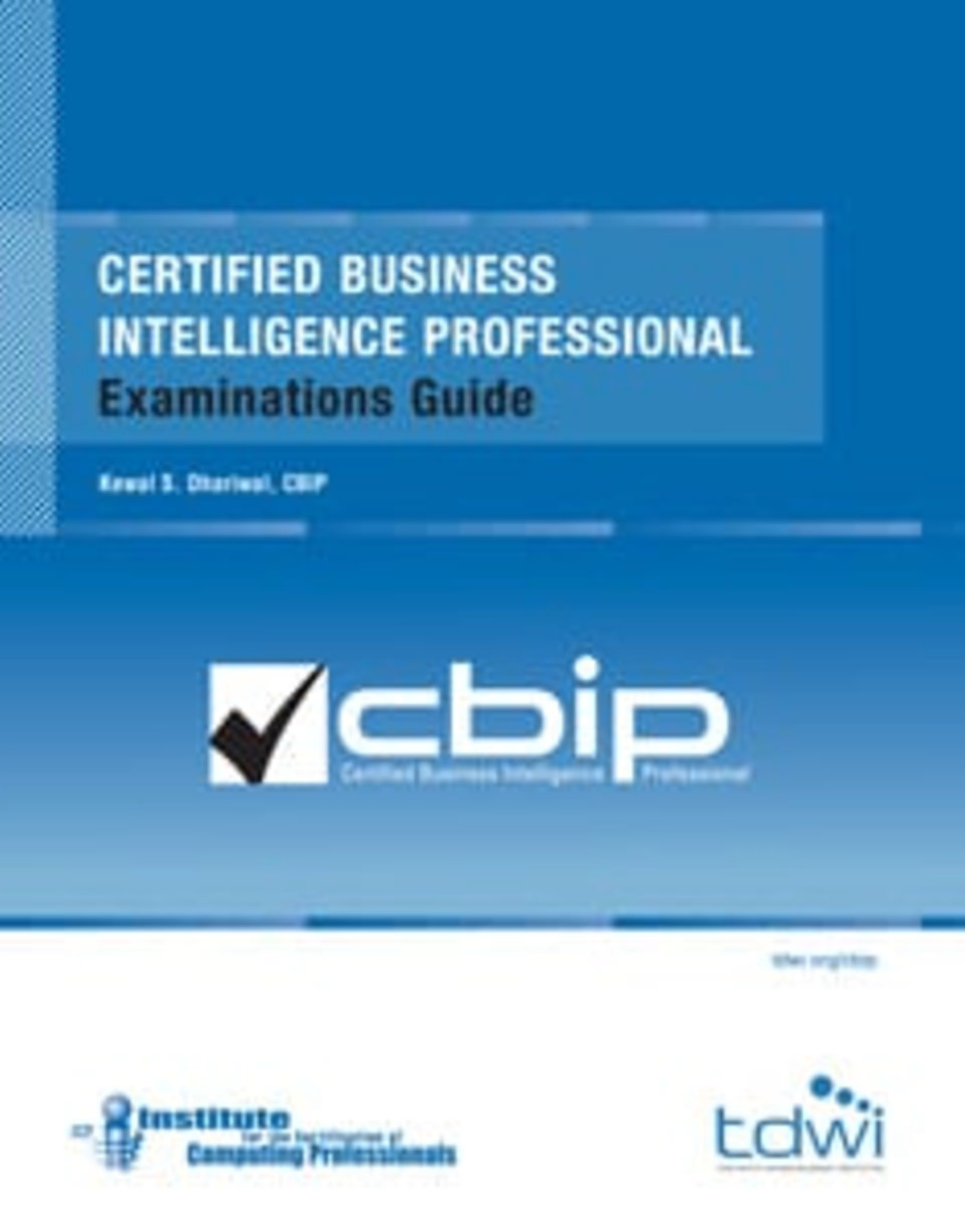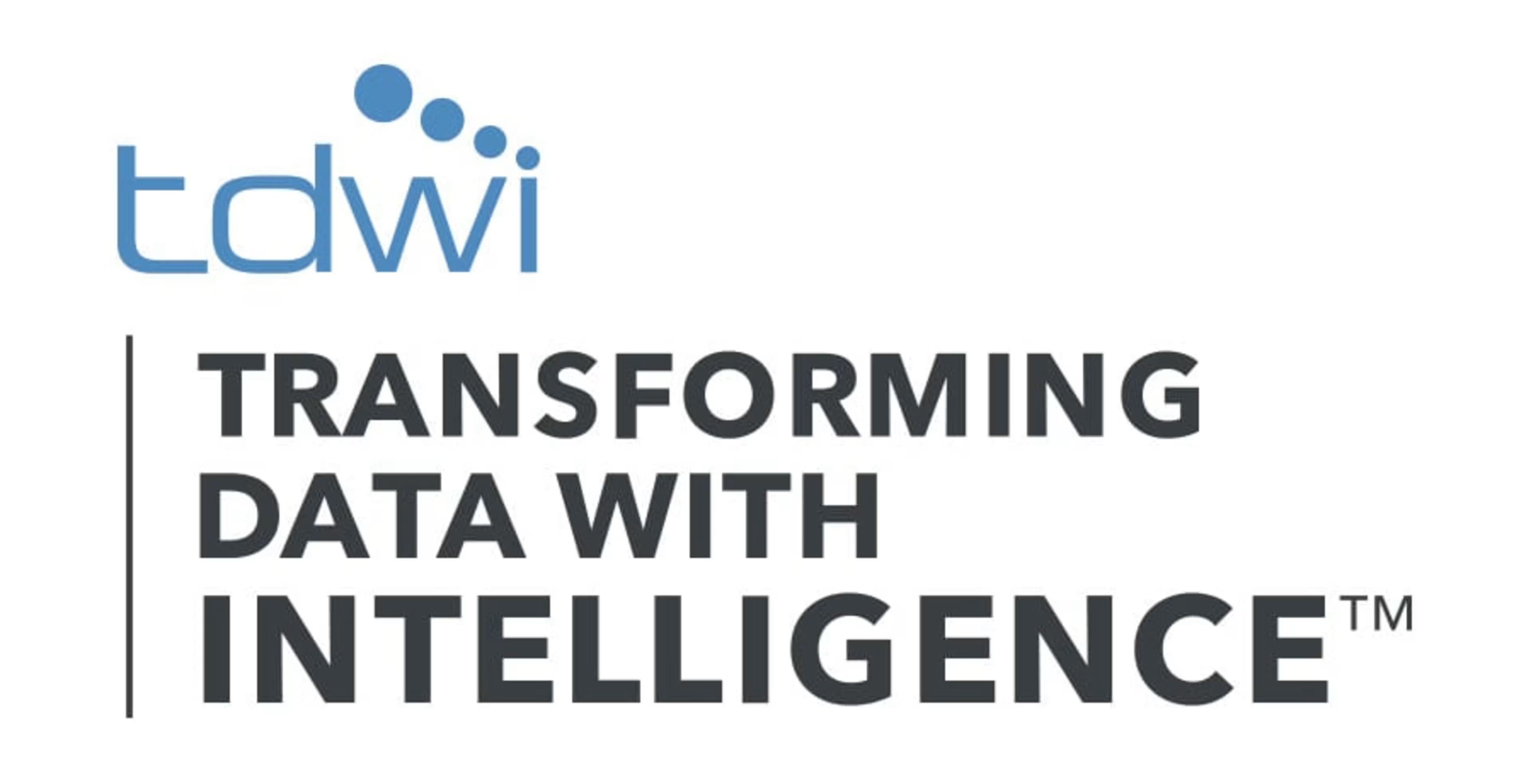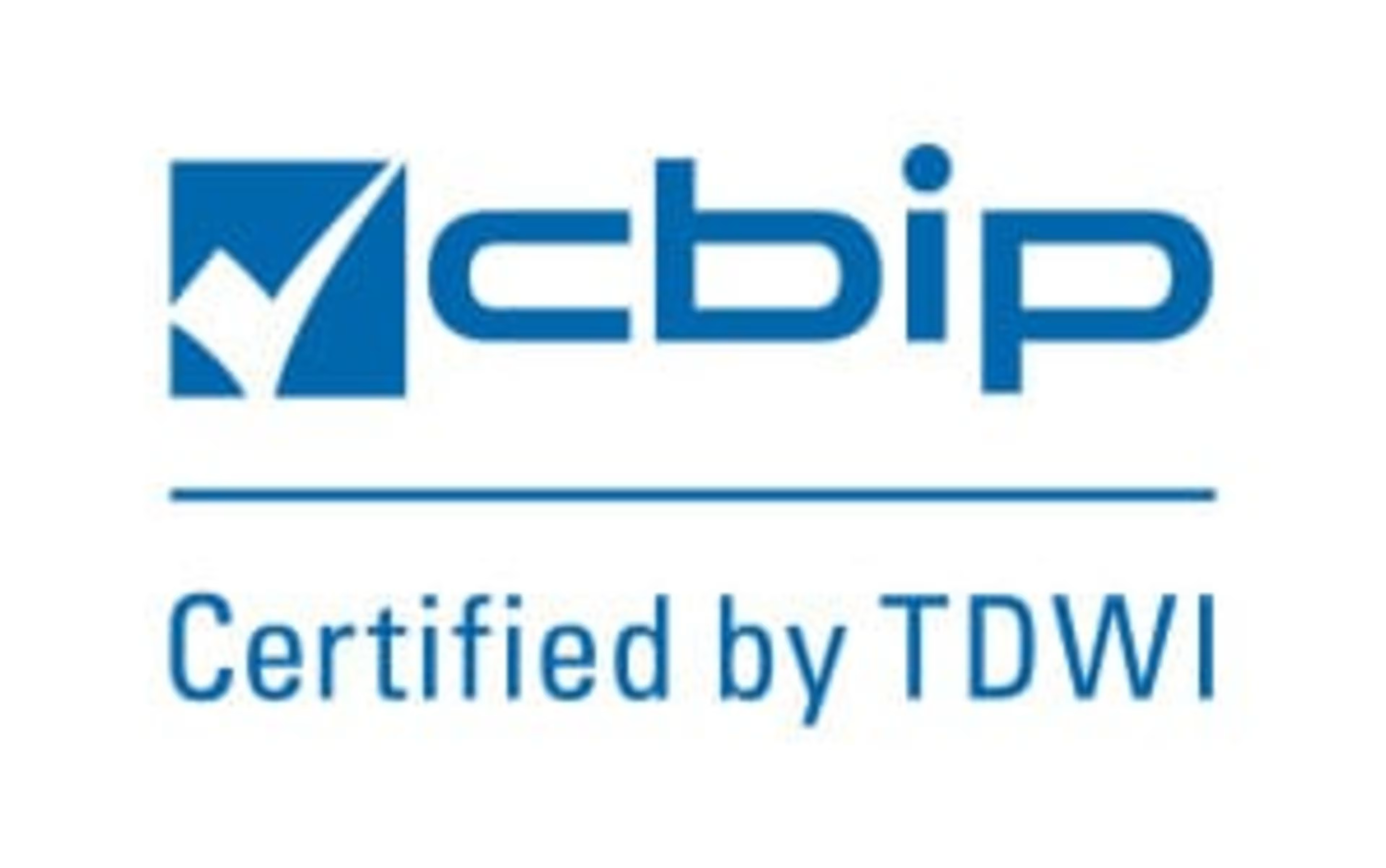Is the Certified Business Intelligence Professional accreditation put out by TDWI worth the money?
Short answer: no.
Long answer: you don't need the CBIP in the sense that you need a certification to practice law, or even in the sense that you need a college degree to be considered for a lot of jobs. You can get a job in business intelligence or business analytics without it.
But, the CBIP certification can still help your career. The CBIP can help you learn, and reinforce, necessary BI skills. You'll also get the opportunity to network, and validate what you know about the world of business data. There are times when the CBIP might be a good investment in your career, but it isn't a necessity for BI professionals, and the price point, as well as the time required to study, holds me back from recommending it to all BI professionals.

CBIP Certification
To get CBIP status, you'll need to pass TDWI's exam.
Exams are offered at TDWI conferences, and remotely online. You'll need to pass three exams, which are each $350 (or $325 if you're a TDWI member) if you take them in person, or $400 each, if you take them remotely online. In other words, just the testing part of the CBIP will set you back between $1,050 and $1,200.
To compare, that's about the cost of a personal website done by a professional designer.
The test isn't the only money you'll spend, though. TDWI recommends that you purchase their official test guide, which is $109 for members, and $135 for non-members. Add to that the study time to prep, and you've got a sizable investment of time and money.

As for what to expect on the exams themselves:
3 tests required Information Systems. Data Warehousing. Pick one: Business Analytics, Data Integration, Leadership and Management, Data Analysis and Design
Get 50% of the answers right or more on each of three to pass (can't be their average)
70%+ answered correctly for mastery certification
90 minutes to take each test
110 questions per test
What do those questions look like?
Without taking the test, that's not easy to find out. For years, people have noted how difficult it is to get a sense of what the meat of the CBIP exams look like. So, that guide is probably required reading (it's not on Google Books, either).
Bottom line: the CBIP is a chunk of time and money. Don't dive in without first getting a sense of what it can do.
What do people say about business intelligence certifications?
If you check the Department of Labor's O*NET entry for "business intelligence analyst," there are 122 certifications that relate to "business intelligence analyst." Seven of those certifications are listed as "in demand" (which means they're "frequently mentioned in online job postings"). The CBIP isn't among them.
If you want third-party information about the CBIP, you'll have to dig. There's little news coverage of the program, even in industry publications and blogs like Network World, Information Management, or Dataconomy. What information there is tends to be generic, and merely lists the same information you'd find on the TDWI website.

The lack of information about the CBIP highlights that it's an option, rather than a requirement. If the CBIP were a vital part of a BI professional's CV, there would be more attention paid to it, and more scrutiny of why it's necessary. There are no stories about changes in testing prices, or requirements, or what falling and rising test scores suggest. Unlike the SATs, for instance, the CBIP is not a touchstone for the overall expectations and quality of test-takers. If you check Google News for other types of professional credentialing exams, you'll get a sense of the difference:
No one is losing sleep over the CBIP. What few sources there are that mention the CBIP, or (even rarer) address it directly, tend to be several years old, at most.
Glassdoor provides similarly slim results. The job site lists 37,314 hits for jobs with business intelligence analyst jobs. If you add "CBIP" to "business intelligence analyst" in your search, that number drops to eight.
Similarly, job postings on LinkedIn don't show much recognition for the CBIP. If you search for "business intelligence" in jobs, you'll get 15,005 results. Add "certified business intelligence professional" to the search, and it drops to sixteen results (three of which are duplicates). The CBIP is listed as required in only one of those thirteen open jobs. For the rest of them, the CBIP gets you "additional consideration," though it's usually listed alongside other factors.
Since professional sources of information are difficult to find, you'll have to look to the wisdom of the crowd for more in-depth information. And looking there, you'll find all the bets are hedged. Phrases like “somewhat correlated" and “how valuable they are depends on what you mean by value" are frequently used to describe the certification. Fans of the exam do cite some benefits, like how it gives them a broader knowledge of the industry, but detractors offer a compelling counter-argument born out by the above evidence:
"I started studying for it and noted it at some point on my resume as “CBIP; in progress" and had recruiters and hiring managers to ask me what the heck it meant. I was going to bust my butt to get it so that I had 'the cert' in my field… but why bother if nobody knows what it is??"
The CBIP certification: The employer's view
To get a sense of how employers view the CBIP, I spoke with Ryan Farley of LawnStarter Lawn Care, who recently hired for five business intelligence roles. When giving insight into the hiring process, he said, "Never once has certification been a factor in decision."

He adds,"When we look for programmers in any sort of BI role, we look for people motivated by solving tech problems, who are intellectually curious," rather than someone with the CBIP. "A certification says 'I'm interested in having another line item on my resume.'" In other words, that "CBIP" suggests that you wanted to make a check mark, rather than answer a question.
Instead of checking for third-party credentials, Farley "instead asks what do you play around with, what business intelligence tools have you tried, what kind of analysis have you done, what sort of side projects are you doing." He prizes intellectual curiosity more than proof that someone's passed a test.
Farley does suggest, however, that someone in a different type of company might benefit from the CBIP. Lawnstarter is an agile startup environment where adaptability and curiosity are necessary for success. A larger, more established player, however, might benefit from seeking out certified analysts. "I could see the CBIP as useful in a larger organization where BI is straightforward, or where BI is a very established process."
Farley's instincts seem on point: among those eight lone Glassdoor postings that mention the CBIP, the only position that requires the certification is PwC.
The CBIP isn't necessary, but it can be helpful
If you want to work at PwC, the CBIP is, no doubt, useful.
Given that the language surrounding the CBIP is always tentative ("this can help," "it could show your commitment"), I would treat it as a possible supplement, rather than a requirement. In the words of a Ciber job posting, the CBIP is a "nice to have." The CBIP's requirements and courses can help you get a job, in that they show your commitment to the trade, and reflect a desire to learn. To my mind, though, none of that suggests a need.
That said, studying for the CBIP will give you a basic background in a few necessary areas. Taking the time to study, then taking the exams, does also show a commitment to the field, and a desire to learn. As Shannon Kempe noted at Dataversity, "There are are many boons associated with BI certification," such as "networking possibilities from meeting and engaging with other certified professionals."

Loretta Mahon Smith takes this a step further. "I used the certification to validate that my understanding of the problem space was correct. When you work with dozens of application developers who are totally process-centric, sometimes you need to make sure that the issues and concerns you raise (from a data life-cycle perspective) aren't off target." The CBIP can thus give you a more holistic view of the business data space.
Similarly, if you don't get a chance to talk to other BI professionals outside of your company, or at all, taking the CBIP test at a TDWI conference offers extra benefits. You'd get the chance to network with other BI professionals, and step outside of your single-company silo.
Taking your certification exam at a TDWI Conference could be a good way to supplement your BI career. While the CBIP may not grab the hiring committee's attention, it could be a valuable addition to your understanding of the field.
Do you have a CBIP certification?
Do you have the CBIP? If so, did you find the experience of getting credentialed to be useful to your career? Was it a valuable learning process? Have employers said it was a factor in getting hired? If yes, or no, to any of these leave a comment below!